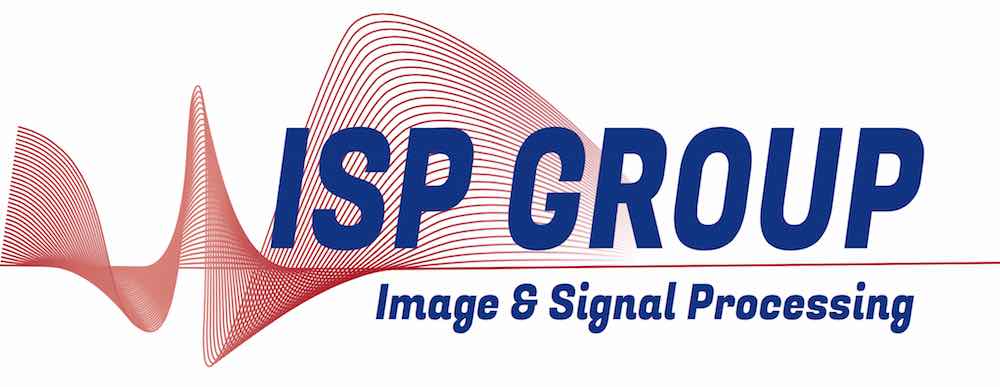ISP Seminars
Previous Seminars
Exact Continuous Relaxations of $L_0$-Regularized Generalized Linear Models
Emmanuel Soubies (IRIT, CNRS, Université de Toulouse)
22 August 2024
External Web page: https://www.irit.fr/~Emmanuel.Soubies/
Euler seminar room (a.002) -- Thursday, 22 August 2024 at 14:00 (50 min.)
Computational Imaging: Restoration Deep Networks as Implicit Priors
Ulugbek Kamilov (Washington University, St. Louis, USA)
28 May 2024
Biography: Ulugbek Kamilov is the Director of Computational Imaging Group and an Associate Professor of Electrical & Systems Engineering and Computer Science & Engineering at Washington University in St. Louis. He is currently a Visiting Professor at the Data Science Center at École Normale Supérieure in Paris. He obtained the BSc/MSc degree in Communication Systems in 2011 and the PhD degree in Electrical Engineering in 2015 from EPFL. He was a Visiting Research Faculty at Google Research in 2023-2024 and a Research Scientist at Mitsubishi Electric Research Laboratories in 2015-2017. He was an Exchange Student at Carnegie Mello University in 2008, Visiting Student Researcher at MIT in 2011, and Visiting Scholar at Stanford University in 2013.
He is a recipient of the NSF CAREER Award and the IEEE Signal Processing Society’s 2017 Best Paper Award. He was among 55 early-career researchers in the USA selected as a Fellow for the Scialog initiative on “Advancing Bioimaging” in 2021. His PhD thesis was selected as a finalist for the EPFL Doctorate Award in 2016. He was awarded Outstanding Teaching Award from the Department of Electrical & Systems Engineering at WashU in 2023. He is currently a Senior Member of the Editorial Board of IEEE Signal Processing Magazine and is on IEEE Signal Processing Society’s Bioimaging and Signal Processing Technical Committee. He has previously servedas an Associate Editor of IEEE Transactions on Computational Imaging and on IEEE Signal Processing Society’s Computational Imaging Technical Committee.
External Web page: https://engineering.wustl.edu/faculty/Ulugbek-Kamilov.html
Shannon seminar room (Maxwell) -- Tuesday, 28 May 2024 at 14:00 (45 min.)
AI in computational imaging: from algorithms to radio astronomy
Yves Wiaux (Heriot-Watt University Edinburgh, UK)
23 February 2024
Biography: Yves Wiaux received the MSc degree in Physics and the PhD degree in Theoretical Physics from the Université catholique de Louvain (UCL, Louvain-la-Neuve) in Belgium, in 1999 and 2002 respectively. He was a Senior Researcher at the Signal Processing Laboratories of the Ecole Polytechnique Fédérale de Lausanne (EPFL) in Switzerland from 2003 to 2013, where he created the Biomedical and Astronomical Signal Processing (BASP) group. In 2013, he moved as an Associate Professor at the School of Engineering and Physical Sciences of Heriot-Watt University where he currently runs the BASP group. He was promoted to Professor at Heriot-Watt in 2016. He is also an Academic Guest at EPFL and a Honorary Fellow at the University of Edinburgh (UoE). Among other responsibilities, Prof. Wiaux chairs the “BASP Frontiers” Conference series, and is an Associate Editor of the IEEE “Transactions in Computational Imaging” (TCI) journal and of the “Royal Astronomy Society Techniques and Instruments” (RASTI) journal. Since 2010, he has led numerous research projects funded by both the Swiss National Science Foundation (SNSF) and the UK Research and Innovation Councils (UKRI). The ethos of Prof. Wiaux’s BASP group is to develop cutting-edge research in computational imaging, from theory and algorithms to applications in astronomy and medicine.
External Web page: https://researchportal.hw.ac.uk/en/persons/yves-wiaux
Euler Seminar Room (A002) -- Friday, 23 February 2024 at 11:00 (45 min.)
V-DMC : the emerging MPEG standard for dynamic mesh compression
Patrice Rondao, Nokia Bell Labs
7 December 2023
Euler seminar room, a.002 -- Thursday, 7 December 2023 at 14:30 (45 min.)
"Screening" and beyond: A strategy to deal with large-scale optimization problems
Cédric Herzet (INRIA/IRMAR - UMR 6625, France)
23 August 2023
External Web page: https://people.rennes.inria.fr/Cedric.Herzet/Cedric.Herzet/Main.html
Euler Seminar Room (A002) -- Wednesday, 23 August 2023 at 11:00 (45 min.)
How to Train Better: Exploiting the Separability of Deep Neural Networks
Elizabeth Newman (Emory University, USA)
9 March 2023
External Web page: http://math.emory.edu/~enewma5/
Euler a.002 -- Thursday, 9 March 2023 at 14:00 (50 min.)
Diffusion models : from DDPM to DALLE-2
Mathieu Simon (UCLouvain)
22 July 2022
External References
- DDPM : https://arxiv.org/abs/2006.11239
- DDIM : https://arxiv.org/abs/2010.02502
- Diffusion models beat GANs : https://arxiv.org/abs/2105.05233
- Classifier free guidance : https://openreview.net/pdf?id=qw8AKxfYbI
- GLIDE : https://arxiv.org/abs/2112.10741
Nyquist seminar room, ICTEAM -- Friday, 22 July 2022 at 00:00 (50 min.)
How to facilitate collaboration between pathologists and engineers in AI research applied to Digital Pathology using Cytomine
Grégoire Vincke (Cytomine Corporation SA, Liège, Belgium) (Invited talk)
15 September 2021
Shannon seminar room -- Wednesday, 15 September 2021 at 14:00 (45 min.)
How to facilitate collaboration between pathologists and engineers in AI research applied to Digital Pathology using Cytomine
Grégoire Vincke (Cytomine Corporation SA, Liège, Belgium)
15 September 2021
External Web page: https://cytomine.com
Shannon seminar room -- Wednesday, 15 September 2021 at 14:00 (45 min.)
Computational Imaging with Plug-and-play priors: Leverage the Power of Deep Learning
Xiaojian Xu (Washington University in St. Louis)(Invited talk)
9 December 2020
(Online) Microsoft Teams -- Wednesday, 9 December 2020 at 16:00 (45 min.)
